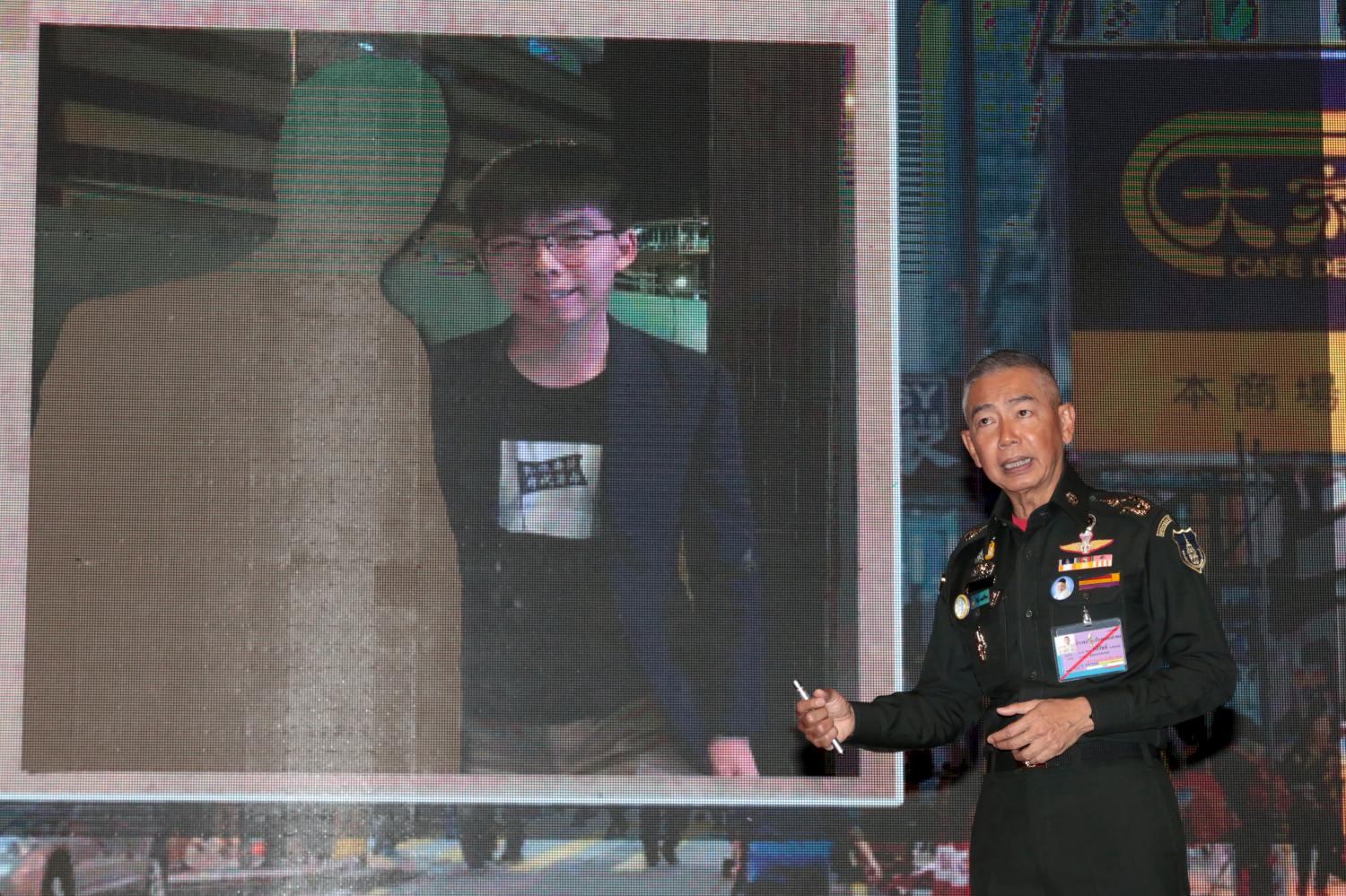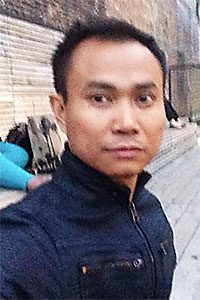
The latest attempt to try to find fault with Future Forward Party leader Thanathorn Juangroongruangkit for having his picture taken with Hong Kong democracy activist Joshua Wong is not only misplaced, but very silly.
However, it is part of a series of bizarre conspiracy theories have been directed against the FFP by the ruling regime and its supporters -- a worrying trend of political warfare whose end is nowhere in sight. So, expect more similar farcical accusations, along with imprudent lawsuits against the party and its leaders, as long as they are not wiped from the political landscape and still pose a threat to the status quo.
The Thanathorn-Wong accusation was first made on Friday by army chief Gen Apirat Kongsompong during a "lecture" attended by many of his die-hard fans -- including some well-known journalists. He accused, without naming, a Thai politician of having a hidden agenda in meeting Mr Wong.
His use of a slide featuring a picture of Mr Wong with the image of the Thai politician removed in his prepared presentation made it obvious he was referring to Mr Thanathorn, who met with Mr Wong after speaking at a forum in Hong Kong. On the same day, the Chinese embassy in Bangkok also issued a statement accusing a Thai politician of siding with protesters in Hong Kong. Do these two events sound like a coincidence to you?
Gen Apirat's lecture also included many accusations targeting unidentified "communist" politicians and "extreme left" academics, whom he said have planted the wrong ideas in young people's minds.
Of course, his theories drew rebukes from many. But they also gained support from die-hard supporters of the pro-military establishment, as well as conservatives who agreed that Mr Thanathorn should not interfere in China's internal affairs. Activist Srisuwan Janya even filed a complaint with the anti-graft agency against Mr Thanathorn.
Seriously? Why do they treat Mr Wong as if he is an international war criminal or a wanted terrorist? Must every politician who has their picture taken with him be condemned?
Before all this, there was a conspiracy theory about the FFP hiring a "lobbyist" to stage a protest against Prime Minister Prayut Chan-o-cha in New York last month. The alleged "lobbyist" appeared to be just a PR firm, APCO Worldwide, which was hired by the FFP to conduct media outreach abroad. This is a typical service provided by PR agencies -- but the accusers used the term "lobbyist" to spice up the story.
Strings of senseless accusations have been made against either the FFP, or Mr Thanathorn and the party's other leaders, portraying them as "lawbreakers". These include allegations that the FFP violated the law for receiving a loan from Mr Thanathorn, that the FFP is part of the much-fabled Illuminati secret society, and that Mr Thanathorn failed to transfer his shares in a media firm as required by law prior to running in the general election.
These allegations have been "flavoured" by pro-government media outlets with messages about the "consequences" of their "legal violations" such as the possibility of the FFP being dissolved with its leaders banned from politics or even imprisoned.
While the ruling regime has benefited from making these accusations, the FFP has been busy with damage control. The overwhelming coverage of many of these conspiracy theories means reports on the government's shortcomings get reduced airtime. After Gen Apirat's controversial lecture, many may have forgotten about the government's failure to tackle the floods in the Northeast, or the controversial splurge on the defence budget planned for next year.
What is more worrying than the silliness of the conspiracies is the fact that some accusations have become, or could end up becoming, actual lawsuits. With the ruling regime's embedded influence in many public organisations, the catchphrases of "party dissolution" or "political ban" could actually become a reality, no matter now weak and ridiculous the allegations are.
Veteran academic Thirayuth Boonmee this week highlighted that Thai politics has now turned into political warfare between the FFP and the government. "In the political [realm], they twist information, create [divisive] discourse, and take legal action to destroy one another. They wield influence on the judicial process and take preemptive measures against their opponents," he said.
To me, his message is only partly right. It fits well with the making of many conspiracy theories and lawsuits initiated by pro-military and conservative factions aligned against the FFP. That said, no matter how many more ridiculous theories the regime churns out, the fact is that the younger generation and FFP fans are not buying their message -- as they aren't quite that shallow.
